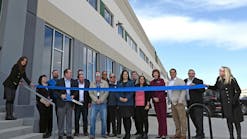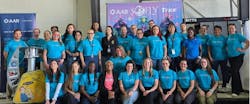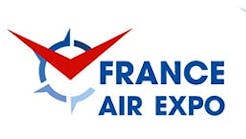Katie Folmar's Career Path Shatters Stigmas About Women in Trade Careers
Kate Folmar always dreamed of being an engineer for NASA or Pratt & Whitney, but she knew engineering wasn’t a career she could just “jump into.” She believed the best engineers start with a background as mechanics, which helps them understand big-picture problems at the hands-on level. So rather than enroll in a pricey four-year engineering degree right out of high school, Folmar took a different path to pursuing her dream job: she earned a 21-month Aviation Maintenance Technology (AMT) degree from Pittsburgh Institute of Aeronautics (PIA).
Folmar’s choice was both practical and timely, as nationwide demand for AMTs has skyrocketed in the past decade. According to Boeing’s pilot & technician forecast, North America will need 187,000 new AMTs by 2037, or about 10,500 new entrants per year. Yet a recent survey by the Aeronautical Repair Station Association found the most common staffing challenge for maintenance and repair organizations is “difficulty finding and retaining technical talent.” This makes promoting aviation-related careers at the high school level a priority in order to boost interest and sustain the sector’s growing demand for talent — especially when an AMT background can provide the springboard to a dream career for students like Folmar.
One month before Folmar graduated from PIA in 2011, she had already accepted a job offer from one of her dream career destinations: Pratt & Whitney, an American aerospace manufacturer whose aircraft engines are widely used in both civil and military aviation. Eight years later, Folmar remains happily employed at Pratt & Whitney, where she currently works as a research & development mechanic. “This is R&D for the entire company, where jet engines and rocket engines get built — it’s like a dream come true. You can’t beat it!”
Today, Folmar is continuing her education by pursuing an engineering degree from Embry Riddle Aeronautical University. Pratt & Whitney not only pays for her degree, but she is also granted three paid hours off each week to complete her schoolwork. “Learning a trade is the most valuable thing I’ve done for my career,” says Folmar, a native of Altoona, PA. “With an A&P, you learn so many trades in one. You’re such a well-rounded technician, and companies will want to hire you because of it.”
We invite you to interview Kate Folmar and learn more about how trade schools provide a path to success for mechanically-inclined workers who seek a different kind of dream job.





